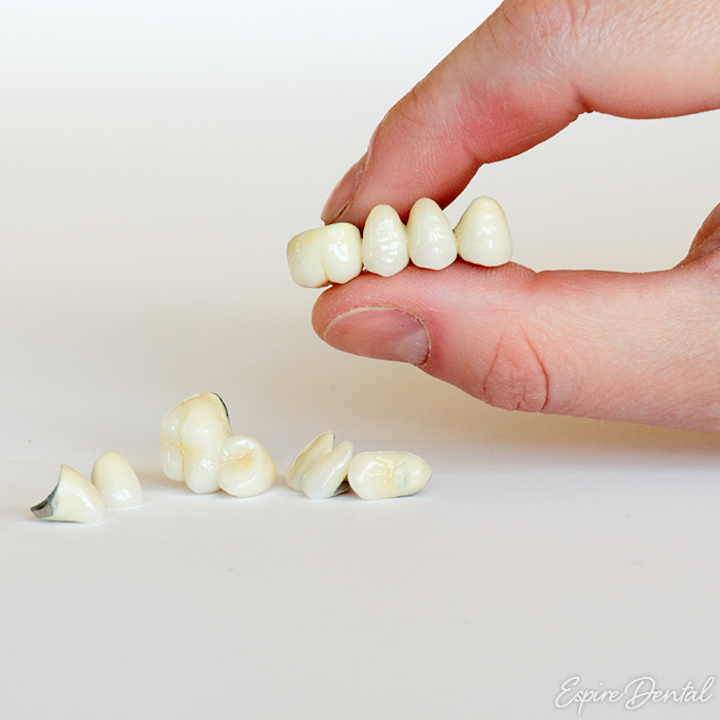
Cavities are one of the most common reasons for dental visits, and everyone should know a cavity’s warning signs.
It’s a popular misconception that only children get cavities. Cavities are common among adults too, and they can happen for many different reasons — not just because of a sugary diet.
What is a cavity?
Before we discuss how to tell if you have a cavity, it’s important to understand: what exactly is a cavity?
A cavity is the earliest stage of tooth decay. When harmful bacteria begins to break down your teeth, it starts at the outermost layer — your enamel. Enamel is the hard, protective layer of minerals that keeps the sensitive inner layers of your teeth (dentine, pulp, and nerves) safe and protected.
When plaque accumulates on the surface of your teeth, overactive bacteria in the plaque can begin to break down your enamel, causing it to rot. When bacteria from plaque eat away a hole in your enamel, this is called a cavity.
Cavities are important to catch early. Untreated tooth decay can progress to the sensitive inner layers of your teeth, causing serious pain and even tooth loss. So, how can you tell if you have a cavity?
Here are some of the most common symptoms of early-stage tooth decay, also known as a cavity:
Aching or pain.
If you’re experiencing a constant ache or pain in a specific area of your mouth, there’s a good chance you have a cavity. When bacteria from plaque eat away at enamel, it exposes the sensitive inner layer of your dentine. Your dentine may hurt or ache if it is exposed to bacterial buildup.
Increased sensitivity.
Even though your teeth may seem tough, they are actually very sensitive underneath your enamel. Once bacteria have eaten through your enamel in a cavity, your sensitive dentine will be hyper-alert of changes to its environment. If your teeth experience sensitivity to hot or cold, or sensitivity to touch, you might have a cavity.
A visible hole in your teeth.
This is maybe the most obvious sign of a cavity, but it is worth examining. If you see a visible hole in one of your teeth, it very likely means a serious cavity has already developed in your enamel. When a cavity is so large that it becomes visible to the naked eye, you are likely already experiencing other painful symptoms, too. A visible cavity means you should visit a dentist immediately, before the tooth decay progresses.
Asymptomatic cavities.
Many cavities don’t show symptoms at all. That’s why it’s so important to visit a dentist regularly — at least twice a year. Your dentist can detect cavities using dental x-rays and a visual checkup with dental tools.
Preventing cavities with Espire
The best way to prevent cavities is to maintain a daily dental care routine. Make sure to brush your teeth at least twice daily, floss at least once daily, and to use fluoride toothpaste or mouthwash to help strengthen your enamel. You can also prevent plaque buildup by minimizing your consumption of sugary and acidic foods and carbohydrates.
Because cavities are often invisible to the naked eye, regular dental checkups can make all the difference. For quality dental care in the Denver metro area, schedule an appointment at Espire today. Your smile is too important to wait!


